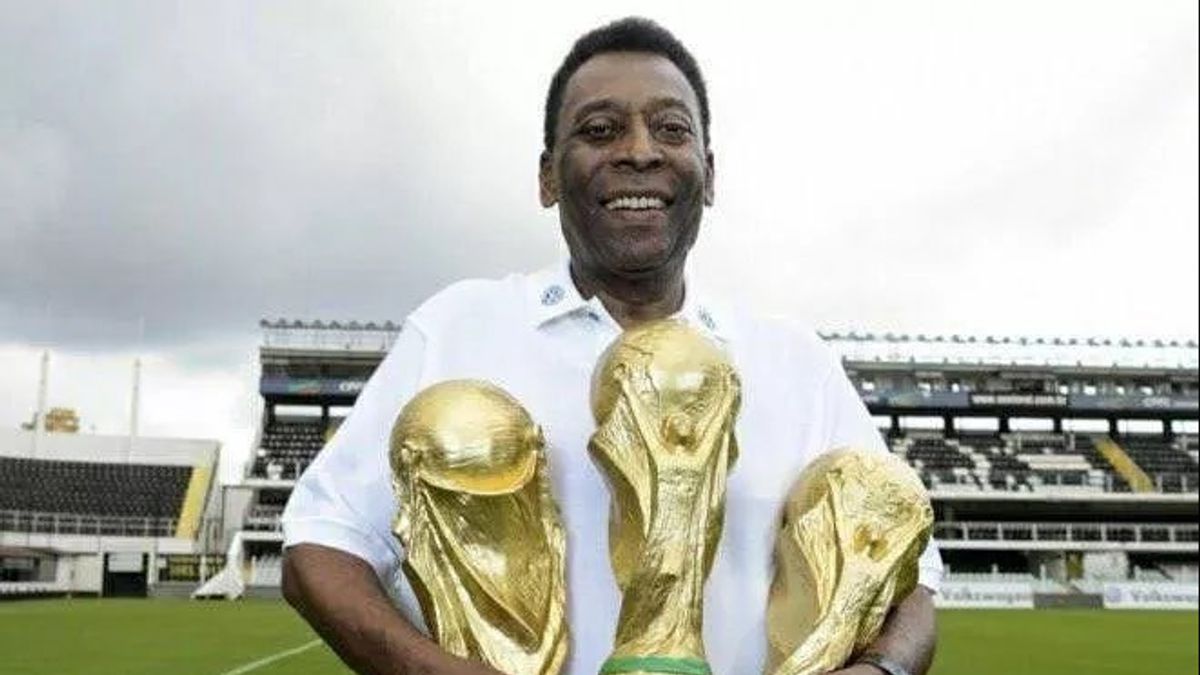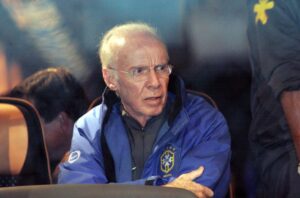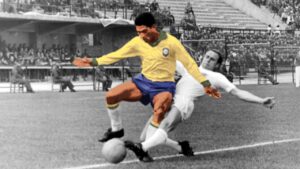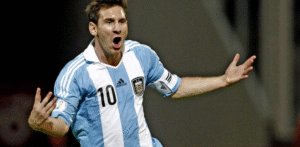13 Legendary Players Who Changed World Cup History
Since 1930, the World Cup has been the biggest stage for football’s greatest heroes. Some players didn’t just play—they changed the game itself. These legendary World Cup players shaped eras, redefined nations’ football identities, and inspired generations. From Pelé’s teenage magic to Messi’s modern masterpiece, here are 13 legends who forever transformed World Cup history.
1) Pelé – The Teenage King of 1958
At just 17, Pelé stunned the world in Sweden 1958, scoring twice in the final and becoming the youngest champion in history (FIFA). Over his career, he won three World Cups—1958, 1962, and 1970—an unmatched record. Pelé’s brilliance made Brazil’s style the global standard for beauty in football.
2) Diego Maradona – The Magician of 1986
Maradona’s 1986 performance remains arguably the greatest single tournament display ever (The Guardian). His “Hand of God” goal and solo run against England are football legend. Maradona embodied Argentina’s fighting spirit and artistic chaos, leading them to glory in Mexico.
3) Zinedine Zidane – The Elegant Playmaker
With grace and precision, Zidane carried France to its first title in 1998, scoring twice in the final against Brazil (BBC). Even his 2006 headbutt couldn’t erase his influence as a symbol of elegance and control. Zidane’s balance between artistry and power redefined midfield mastery.
4) Ronaldo Nazário – The Phenomenon
Ronaldo overcame devastating injuries to return in 2002 and lead Brazil to their fifth World Cup title (Sports Illustrated). His two goals in the final sealed redemption after 1998’s heartbreak. Nicknamed “O Fenômeno,” Ronaldo embodied resilience and Brazilian flair at its peak.
5) Lionel Messi – The Master of Modern Football
After years of heartbreak, Messi lifted the World Cup in Qatar 2022, fulfilling his lifelong dream (New York Times). His seven goals and unmatched leadership drove Argentina to victory. The moment solidified his place among the all-time legendary World Cup players.
6) Miroslav Klose – The Relentless Finisher
Germany’s Miroslav Klose holds the record for most World Cup goals—16 across four tournaments (FIFA). Known for timing and precision, Klose thrived on the biggest stage. His professionalism and consistency turned efficiency into an art form.
7) Franz Beckenbauer – The Kaiser
Beckenbauer led West Germany to victory in 1974 as captain and repeated the feat as coach in 1990 (DW). He revolutionized defense by creating the modern sweeper role. Beckenbauer’s leadership made him the epitome of tactical intelligence.
8) Johan Cruyff – The Visionary
Cruyff never won the World Cup but transformed football philosophy with “Total Football” in 1974 (The Guardian). His tactical genius inspired generations of players and coaches. His legacy lives on every time fluid, creative football is played.
9) Lev Yashin – The Black Spider
Lev Yashin remains the only goalkeeper to win the Ballon d’Or (FIFA). His performances for the USSR in 1958, 1962, and 1966 redefined the role of a keeper. Known for reflexes and courage, Yashin became a global icon of reliability and excellence.
10) Garrincha – The Joy of the People
With mesmerizing dribbles, Garrincha carried Brazil to the 1962 title after Pelé’s injury (Sports Illustrated). His unpredictable style made defenders dizzy and crowds ecstatic. Garrincha’s joy on the field embodied Brazil’s soul.
11) Just Fontaine – The Record-Breaker
Fontaine scored 13 goals in the 1958 World Cup—a record still unbroken (UEFA). His explosive finishing stunned opponents and fans alike. Though his career was short, his record remains eternal.
12) Paolo Rossi – The Redeemed Hero
After a suspension, Paolo Rossi returned to become Italy’s 1982 hero, scoring six goals including a hat-trick vs Brazil (The Guardian). His redemption arc captured hearts worldwide. Rossi’s fairytale triumph defined Italian resilience.
13) Cafu – The Eternal Captain
Cafu is the only player to appear in three consecutive World Cup finals, winning two of them (1994, 2002) (FIFA). His stamina, leadership, and spirit made him the perfect captain. He symbolized Brazil’s consistency and joy across eras.
What makes these players legendary?
Each player redefined excellence on football’s biggest stage, whether through goals, leadership, or innovation (FIFA). They didn’t just win matches—they shaped eras of football culture.
Who is the greatest of all time?
While opinions vary, Pelé, Maradona, and Messi stand above as the ultimate icons of the legendary World Cup players. Their influence transcends sport, uniting generations of fans worldwide (New York Times).
Suggested Internal Reads: The Art of World Cup Fan Displays & Tifos · Traveling Fans · Host Nation Home Support



